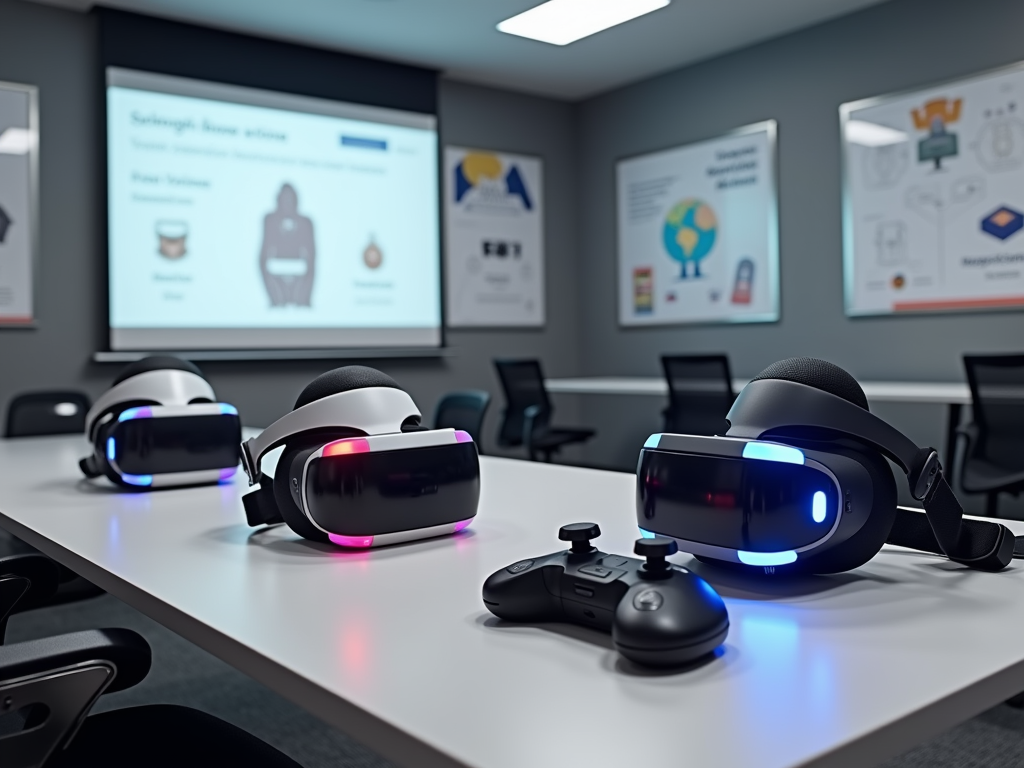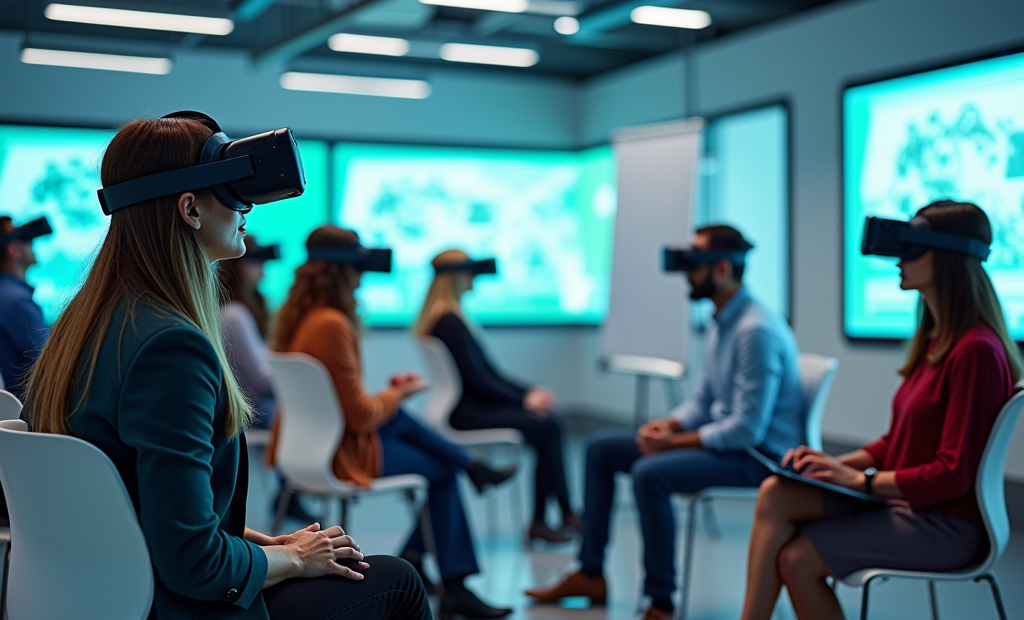How to Start a VR-Enhanced Training Academy in Dubai
Starting a VR-enhanced training academy in Dubai is an innovative venture that merges cutting-edge technology with education. As virtual reality (VR) continues to transform how we learn and train, Dubai’s thriving tech ecosystem offers a fertile ground for such initiatives. This article delves into the essential steps you need to take to launch your own VR training academy, from market research to curriculum development and marketing strategies.
Understanding the Market Demand

Before diving into the specifics of establishing a VR-enhanced training academy, it is crucial to understand the current market demand for VR in education and training sectors in Dubai. The emirate has invested heavily in technological advancements, making it a hub for innovation. Additionally, with the increasing emphasis on interactive and immersive learning experiences, companies and institutions are seeking modern approaches to training.
To assess market demand, consider the following steps:
- Conduct surveys to gauge interest in VR training among potential clients.
- Analyze existing training programs and their effectiveness.
- Identify industries that benefit from VR training, such as healthcare, aviation, and hospitality.
- Attend industry conferences to network and gather insights.
- Consult with educational institutions to understand gaps in their training programs.
Developing Unique Training Programs

Once you have a clear understanding of market demand, the next step is to develop unique training programs tailored to the needs of businesses and individuals in Dubai. Consider leveraging VR technology to create immersive scenarios that mirror real-world challenges. This will not only enhance learning but also improve retention and application of skills.
When creating training programs, keep the following in mind:
- Determine the target audience and their specific needs.
- Collaborate with industry experts to ensure content relevance.
- Incorporate various VR technologies like simulations and interactive environments.
- Assess the level of tech literacy among your audience to customize the experience.
- Establish a feedback loop to continuously improve the curriculum.
Having the right infrastructure is critical for the success of a VR training academy. This includes investing in state-of-the-art VR equipment, software, and a physical space conducive to training sessions. Your academy should be equipped not only with VR headsets and controllers but also with computers and high-speed internet to handle advanced VR applications seamlessly.
In setting up your infrastructure, consider the following:
- Choose a suitable location that is accessible to your target audience.
- Create training rooms that can accommodate VR setups without distractions.
- Invest in high-quality VR content creation tools & software.
- Ensure compliance with health and safety regulations regarding technology use.
- Plan for scalability to adapt to future technological advancements.
Marketing Your VR Training Academy
Once your academy is established, it’s time to market your unique offerings. An effective marketing strategy will help you attract clients and build a reputable brand in the competitive Dubai educational landscape. Utilize a mix of online and offline marketing techniques to reach your target audience effectively.
Some effective marketing strategies include:
- Creating a professional website that showcases your programs and success stories.
- Using social media platforms to engage with potential clients and share valuable content.
- Partnering with local businesses and educational institutions for referrals.
- Running workshops or free demo sessions to showcase the effectiveness of your training.
- Utilizing email marketing campaigns to keep your audience informed about new offerings.
Conclusion
Starting a VR-enhanced training academy in Dubai is a promising venture that combines technology with education to transform learning experiences. By understanding market demands, developing unique training programs, establishing the right infrastructure, and employing effective marketing strategies, you can build a successful business that stands out in the competitive landscape. With Dubai’s commitment to innovation and technology, your academy has the potential to thrive and make a significant impact in the education sector.
Frequently Asked Questions
1. What industries can benefit from VR training?
Industries such as healthcare, aviation, construction, hospitality, and corporate training can significantly benefit from VR training as it allows for immersive simulations and hands-on experience without real-world risks.
2. How much investment is required to start a VR training academy?
The investment can vary widely depending on the chosen location, the technology used, and the scale of the operation. However, it’s essential to budget for high-quality VR equipment, software development, and marketing expenses.
3. Is it necessary to have technical knowledge to run a VR academy?
While having technical knowledge can be beneficial, it’s not strictly necessary. Collaborating with VR developers and hiring experienced instructors can help bridge any technical gaps.
4. How can I ensure the quality of training programs?
To ensure quality, work closely with industry experts to curate content, gather feedback from trainees, and continuously update programs based on technological advancements and industry needs.
5. Are there any regulations for operating an educational institution in Dubai?
Dubai has specific regulations for educational institutions. It’s advisable to consult local authorities and comply with licensing and accreditation requirements to operate legally.



